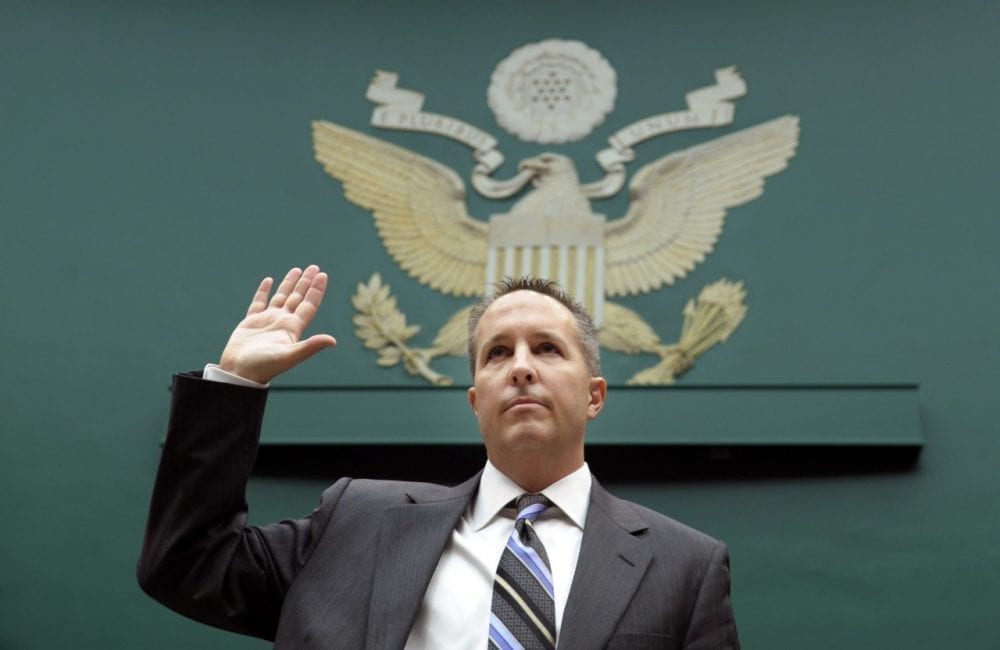Jurors are now deliberating over the deadly meningitis outbreak of 2012 involving Barry Cadden, the co-founder and former president of the New England Compounding Center (NECC). The outbreak itself claimed 64 lives and “injured about 700 others in 20 states,” so it’s unsurprising that the charges against Cadden are pretty severe. What do the charges entail, exactly? Well, they include “a massive racketeering indictment with second-degree murder in the deaths of 25 people, as well as fraud and other charges.”
Jurors are now deliberating over the deadly meningitis outbreak of 2012 involving Barry Cadden, the co-founder and former president of the New England Compounding Center (NECC). The outbreak itself claimed 64 lives and “injured about 700 others in 20 states,” so it’s unsurprising that the charges against Cadden are pretty severe. What do the charges entail, exactly? Well, they include “a massive racketeering indictment with second-degree murder in the deaths of 25 people, as well as fraud and other charges.”
So what did Cadden do that lead to so many falling ill or dying? For starters, Assistant U.S. Attorney Amanda Strachan stated during closing arguments that Cadden ran his company “in an extraordinarily dangerous way,” so much so that his practices lead to “contaminated steroids being shipped around the country, where doctors — trusting they were safe — injected them into patients.” Cadden’s actions, according to Strachan, “put profits over patients,” and contributed to preventable deaths and illnesses. She added to her argument, saying “Cadden cut corners and failed to follow industry regulations for cleanliness and sterility in the so-called clean rooms at NECC, where drugs were manufactured.” Additionally, she stated that “NECC did not sterilize drugs long enough, didn’t test large enough samples and shipped out drugs before receiving the results of sterility tests.”
Because Cadden skipped all of these important steps and cut so many corners, there was no way for him to know whether or not drugs were sterile and safe. “He put patients’ lives at risk, and that is second-degree murder,” Strachan said. At the end of her closing argument, she showed pictures to the jury of the 25 people Cadden is charged with killing.

In his defense, Bruce Singal, Cadden’s lawyer, told the jury that his client is not responsible for the lives lost. He said, “as horrible as each of these stories is, there is nothing that shows that Mr. Cadden did something that the government can link to the death of that person.” He added to his statement, stating “Glenn Chin, the supervisory pharmacist, was responsible for the day-to-day operations in the clean rooms and repeatedly allowed employees to cut corners, going against instructions from Cadden to do it right.” Chin also faces charges similar to Cadden and will go on trial soon.
According to Singal, Cadden worked hard to ensure proper procedures were followed, every step of the way, and even mentioned emails that “Cadden sent to an outside cleaning service reprimanding the company after he learned its employees had not followed proper procedures,” and said the prosecutors were simply playing on the “jurors’ emotions to try to convict Cadden of murder.” He also played a voicemail recording that “Cadden left for a client after the outbreak was discovered, instructing the client to quarantine the steroids.” In the recording, Cadden could be heard saying: “We consider this an emergency.” After playing the recording, Singal ended his closing argument by saying:
“This is indeed a tragic death case, but it is not a murder case, and there is a big, big difference between the two.” He added, in reference to the recording, “As you go into the jury room, ask yourselves, ‘Are those the words of a murderer? Are those the actions of a murderer? And is that the voice of a man who murdered 25 people?’”
Deliberations began shortly after closing arguments.
Sources:
Meningitis outbreak: Murder or public health tragedy?
Jurors Begin Deliberations in Deadly Meningitis Outbreak Trial


Join the conversation!